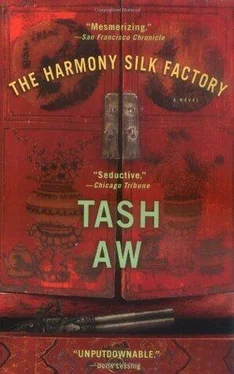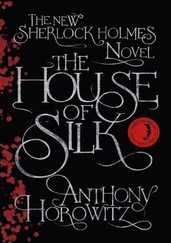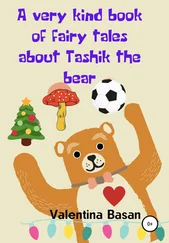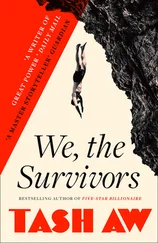Thankfully, before an understanding was reached between the parents, T.K. and Patti discovered that the boy’s parents were not quite as wealthy as they seemed. The superintendent’s lavishness at the races had taken its toll on the family’s finances, and it was thought that much of his wife’s fabulous jewellery was borrowed from sympathetic relatives. It was clear that the hopes for dowry which T.K. and Patti expected in return for the hand of their daughter could never be fulfilled.
Scarred by this experience, T.K. and Patti became cautious and especially thorough in their appraisal of potential suitors. They asked many questions, they made enquiries. They did not want to make the same mistake twice. In letting the match with the superintendent’s son progress to the extent it had, T.K. and Patti had been careless. One such mistake was forgivable; two mistakes would not be. Not only would it reflect badly on them, it would also diminish the value of Snow’s attractiveness — and the size of her dowry. Yet their diligent investigations made the prospect of a match more and more remote. Every search turned up some unpleasant detail about the family in question, ranging from full-blown scandals to questionable associations: lunatic grandfathers, homosexual uncles, bastard children, gambling debts, hushed-up divorces.
The plain truth of it was that it was 1940, and there was little money in the Valley, certainly nothing that could match the wealth of the Soong family. Snow was not yet twenty. There was still time, but a suitable match had to be made soon.
For all their meticulous planning, T.K. and Patti’s first proper meeting with Johnny was precipitated by events beyond their control. It so happened that a new man was appointed as head of the British mining concern in the Valley, a fine young gentleman called Frederick Honey. He arrived with impeccable credentials, having gained a rugger Blue at Oxford and a keen grasp of tropical hygiene and colonial law from the School of Oriental Studies. His reign over the British tin-mining enterprise was, ultimately, short-lived, for he was lost to a boating accident in 1941, when he drowned in the waters off Pangkor Island in a treacherous monsoon storm; his body was never found. It is clear, however, that during his short tenure in the Valley, he was much admired. T. K. Soong was, as you can imagine, quick to see the value of having Mr. Honey as an ally, and eager to make an impression on this formidable new tuan besar as soon as possible. It was decided in the Soong household that a gift should be sent to Mr. Honey, something instantly suggestive of the Soongs’ status and influence in the Valley; something unusual and beyond the reach of an Englishman newly arrived in the country. But what? A whole roast pig, perhaps? No — too ostentatious. A scroll of the finest Chinese calligraphic paintings? No — not grand enough.
“How about some textiles?” Patti said in desperation to her husband. “From that man, what’s his name — Johnny Lim?”
T.K. paused. He was inclined to dismiss the idea at once, but the paucity of previous suggestions persuaded him to consider for a moment. He paused for quite some time. “It’ll be fruitless,” he said, but nonetheless he decided to summon Johnny to the house.
Johnny had long since ceased to tour the countryside by bicycle, but the call of T. K. Soong was one he could not resist. He arrived at the house and found himself seated in the enormous room in which the Soongs received their visitors. Its vastness amazed him; his eyes could barely take in the details of its space: the rattan ceiling fans rotating slowly, arrogantly, barely stirring the air; the softness of the light through the louvred shutters; above all, the books, which lined an entire wall, row after perfect row.
“We have heard many good things about you,” T.K. said as Johnny began to unpack his bags on the table which had been specially set up for him.
“Thank you,” he said, still marvelling at the books.
Behind his back Patti tugged at T.K.’s sleeve. “How old is he?” she whispered. She had heard that Johnny Lim was a young man, and in her mind’s eye had pictured a wild-haired, loudmouthed tearaway with dirty fingernails. Yet before her stood someone neat and compact, who seemed almost middle-aged, whose movements were laborious and heavy with experience. A fleeting image tickled her imagination: Johnny and Snow seated on bridal thrones of the type that perished with the death of nineteenth-century China. “I must say, Mr. Lim,” she said as she fingered a piece of English chintz, “now that I see your wares, I can understand why people are so complimentary about you. About your shop, I mean.”
Johnny lowered his head and did not answer. He unfolded a length of songket, its gold threads shining and stiff and stitched into an intricate pattern.
“This piece of cloth, for example,” Patti continued, running her hand over a piece of brocade, “is very beautiful. Very fitting for a woman, wouldn’t you say?”
Johnny nodded.
“Not for an old woman like me, of course, but for a younger woman. Do you agree, Mr. Lim? It must be very popular with fashionable ladies.”
“No, not really,” he said truthfully. “It’s too expensive.”
“Ohh, Mr. Lim.” Patti laughed. “Truthfully, do you think it would suit a young woman? No one very special or very beautiful, of course.”
Johnny half-shrugged, half-nodded.
“Would you mind if I asked my daughter to see this? I’m sure you’re too busy to spend much time with her, but if you could spare a few moments—”
“I would be pleased to meet your daughter,” Johnny said. His pulse quickened. Even though he had heard about the Soongs’ famous daughter, he had not for a second thought that he would be introduced to her.
“I’m sure you’re just saying that to be polite, Mr. Lim,” Patti said with a laugh as she got up to leave the room. “After all, my daughter is hardly worth meeting. I’m sure you will be disappointed.”
“I’m certain I will not.”
“If you insist,” Patti said, disappearing out of view.
A minute elapsed, and then another, before she reappeared. “My daughter, Snow,” she said.
It took Johnny several moments to gather himself. She was a disappointment, a shock. He had expected a tiny, exquisite jewel, but instead he found himself looking up at a woman who seemed to tower endlessly above him. He breathed in, trying to swell his chest and lift his shoulders to make himself taller. When he looked at her face he found her staring intently into his eyes, and he quickly lowered his gaze. He felt embarrassed, cheated — though he did not know of what.
Poor Snow. She had grown used to being courted by lively, attentive men, but now she was confronted by a suitor who seemed more interested in his fingernails. At one stage she noticed he was gazing at a spot just above her collarbone, and for a brief moment she thought that he was staring at her neck. Then she realised he was looking at the books on the shelf behind her. She tried to engage him in conversation, but it was no use. This curious man sat like a deaf-dumb little orphan child before her. He was small and dark, with an impenetrable moonface. She searched for some clue as to what his character might be and concluded that there was none: no character whatsoever. She began to feel sorry for him. Later, her parents told her that he was a textile merchant, very rich and well known. Snow had not heard of him. As she watched him leave the house, she knew, from the glow of contentment on her parents’ faces, that all parties had reached an understanding. The negotiations — the courtship — would soon begin, but the business had already been concluded. That afternoon, T.K. and Patti had bought from Johnny a few lengths of songket and some hand-blocked European cotton, which would in turn buy them favour with the British. And as for Johnny, he had gained himself entry into a world he had always dreamed of.
Читать дальше
Конец ознакомительного отрывка
Купить книгу












